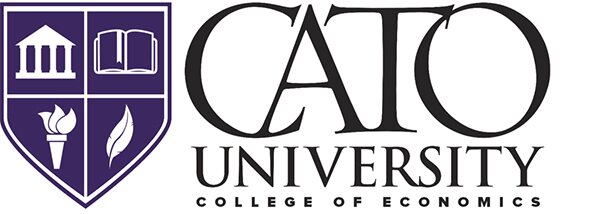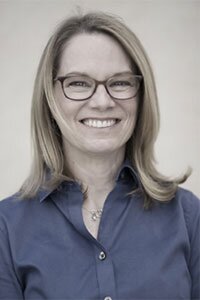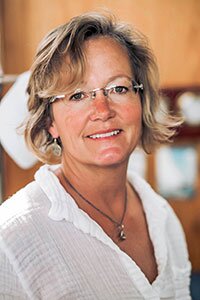July 27-29, 2017 • Newport Beach, CA
About Cato University | Schedule | Register | Scholarship
Cato University's College of Economics is based on the conviction that economics shouldn't be limited only to specialists. Economics is a way of thinking, a tool for decision-making, and a basis for action. It's the necessary foundation for understanding government, business, and society generally.
Discussions by Nobel Laureate Vernon Smith and top scholars and economics professors from Harvard University, Northwestern University, and the Cato Institute are designed to solidify your expertise on basic economic principles, and then help you apply those tools to today's most pressing issues.
In this one-of-a-kind learning environment, you'll join others from around the country who care about the direction of America and the world — individuals who aren't content to let government experts or populist politicians direct "the economy," but who want an economic order that's based on freedom and justice and that delivers prosperity. Register here.
Schedule
| Thursday, July 27 | |
| 3:00 – 6:00PM | Registration |
| 6:30 – 7:30PM | Reception |
| 7:30 – 9:30PM | The Economics of Liberty and Prosperity Modern widespread prosperity is made possible by respect for individual freedom -- to think, to plan, to challenge old ways of doing things, to introduce new products and services, to be enterprising. How are liberty and shared prosperity closely connected? Dinner Speaker: Tom Palmer, Senior Fellow, Cato Institute; George M. Yeager Chair for Advancing Liberty and Executive Vice President for International Programs, Atlas Network Download a podcast of "The Economics of Liberty and Prosperity" |
|
Friday, July 28 |
|
| 8:00AM | Breakfast |
| 9:00 – 10:15AM | The Power of Incentives What is the impact of positive incentives? Free societies rely on the right incentives to foster peaceful cooperation and harmony. How can the wrong incentives, even imposed with the best of intentions, create truly perverse consequences? Speaker: Jeff Miron, Director of Undergraduate Studies, Department of Economics, Harvard University Download a podcast of "The Power of Incentives" |
| 10:15 – 10:45AM | Break |
| 10:45 – 12:00PM | Spontaneous Orders Most of the order in human life wasn't consciously foreseen, designed, or imposed; it just grew. Free societies include many islands of conscious planning, but the overall order of a free society isn't planned. Organizations have purposes, but society has no one purpose. Speaker: Lynne Kiesling, Department of Economics, Purdue University Download a podcast of "Spontaneous Orders" |
| 12:00 – 1:30PM | Lunch |
| 1:30 – 2:45PM | The Economics of Cooperation and Coercion People can get what they want by persuasion or by violence. But, how does economics help us to understand each form of interaction: work and trade, on the one hand, and force and robbery, on the other? Speaker: Jeff Miron, Director of Undergraduate Studies, Department of Economics, Harvard University Download a podcast of "The Economics of Cooperation and Coercion" |
| 2:45 – 3:15PM | Break |
| 3:15 – 4:30PM | Rational Choice and Public Policy Analysis Public choice has emerged to explain behavior in both markets and politics. To what extent do voters and consumers behave rationally, and how can a science largely germinated in the study of market exchange help to explain politics? Speaker: Tom Palmer, Senior Fellow, Cato Institute; George M. Yeager Chair for Advancing Liberty and Executive Vice President for International Programs, Atlas Network Download a podcast of "Rational Choice and Public Policy Analysis" |
| 4:30PM | Free Time |
| 6:30 – 7:00PM | Reception |
| 7:00 – 9:00PM | Documentary Screening and Discussion: The Human Cost of Welfare Policies Dinner Speaker: Lisa Conyers, Director of Policy Studies, DKT Liberty Project Download a podcast of the Documentary Screening and Discussion: The Human Cost of Welfare Policies |
|
Saturday, July 29 |
|
| 8:00AM | Breakfast |
| 9:00 – 10:15AM | Environmental Economics How can property, contracts, markets, and legal accountability align incentives to create flourishing and clean environments, stewardship of resources, and social harmony? Speaker: Lynne Kiesling, Department of Economics, Purdue University Download a podcast of "Environmental Economics" |
| 10:15 – 10:45AM | Break |
| 10:45 – 12:00PM | The Economics of Trade and the Politics of International Trade International trade accounting is often a source of confusion that can be clarified by systematically examining the terms involved. What are the political controls and the myths that concentrated interests use to restrict mutually beneficial exchange? Speaker: Dan Ikenson, Director of the Herbert A. Stiefel Center for Trade Policy Studies, Cato Institute Download a podcast of "The Economics of Trade and the Politics of International Trade" |
| 12:00 – 1:30PM | Lunch |
| 1:30 – 2:45PM | The Economic Analysis of Social Policy Economics doesn't just illuminate and explain exchange of goods and services or voting behavior in political contests. How can it be used to explain other governmental policies and their consequences, from prohibition of drugs and alcohol to sexual behavior? Speaker: Jeff Miron, Director of Undergraduate Studies, Department of Economics, Harvard University Download a podcast of "The Economic Analysis of Social Policy" |
| 2:45 – 3:15PM | Break |
| 3:15 – 4:30PM | The Economics of Knowledge The knowledge needed for economic coordination is dispersed throughout society and not easily communicated. How have markets, prices, and other mechanisms evolved to allow people in free societies to benefit from such dispersed knowledge without having to centralize and master it all themselves? Speaker: Lynne Kiesling, Department of Economics, Purdue University Download a podcast of "The Economics of Knowledge" |
| 4:30PM | Free Time |
| 6:30PM – 7:00PM | Reception |
| 7:00PM – 9:00PM | Adam Smith on Moral Sentiments and the Wealth of Nations Dinner Speaker: Vernon Smith, Nobel Laureate in Economics and Senior Fellow, Cato Institute Download a podcast of "Adam Smith on Moral Sentiments and the Wealth of Nations" |
About Cato University | Schedule | Register | Scholarship






